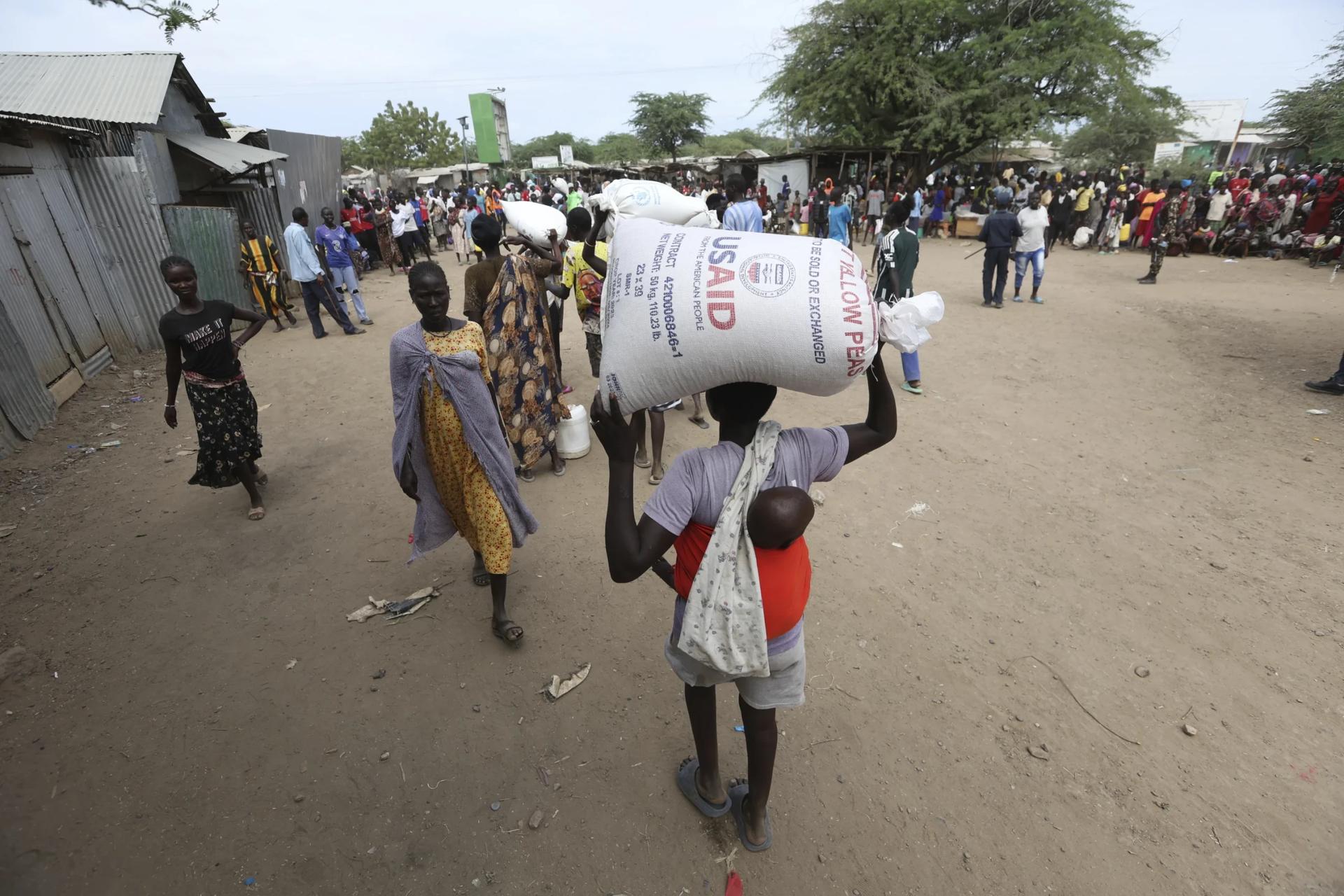In a world darkened by war and injustice, “even when all seems lost,” Pope Leo XIV said migrants and refugees “stand as messengers of hope.”
In his message for the 111th World Day of Migrants and Refugees – which happens on Oct. 4-5 – the pontiff notes the “current global context is sadly marked by wars, violence, injustice and extreme weather events, which force millions of people to leave their homelands in search of refuge elsewhere.”
The event was established in 1914, and usually takes place the last weekend of September, but this year takes place on the first weekend of October because of the events in the 2025 Jubilee, and has the theme “Migrants, missionaries of hope.”
In his statement released on July 25, Pope Leo said the widespread tendency to look after the interests of limited communities “poses a serious threat to the sharing of responsibility, multilateral cooperation, the pursuit of the common good and global solidarity for the benefit of our entire human family.”
“The prospect of a renewed arms race and the development of new armaments, including nuclear weapons, the lack of consideration for the harmful effects of the ongoing climate crisis, and the impact of profound economic inequalities make the challenges of the present and the future increasingly demanding,” he added.
According to the UN Refugee Agency, there were 123.2 million forcibly displaced people in the world at the end of 2024. It also said an estimated 49 million (40 percent) are children below 18 years of age.
The leading countries where refugees come from are Venezuela (6.2 million), Syria (6 million), Afghanistan (5.8 million), Ukraine (5.1 million), and South Sudan (2.3 million.) Meanwhile, the leading countries hosting refugees are Iran (3.5 million), Turkey (2.9 million), Colombia (2.8 million), Germany (2.7 million), and Uganda (1.8 million).
Pope Leo said that faced with frightening scenarios and the possibility of global devastation, “it is important that there be a growing desire in people’s hearts for a future of peace and of respect for the dignity of all.”
“What is more, the search for happiness, and the prospect of finding it beyond one’s place of origin, is certainly one of the main motivations for the movement of people today,” he said.
The pontiff said the link between migration and hope is “clearly evident” in many contemporary experiences of migration.
“Many migrants, refugees and displaced persons are privileged witnesses of hope. Indeed, they demonstrate this daily through their resilience and trust in God, as they face adversity while seeking a future in which they glimpse that integral human development and happiness are possible,” Leo said.
He said the “courage and tenacity” of refugees “bear heroic testimony to a faith that sees beyond what our eyes can see and gives them the strength to defy death on the various contemporary migration routes.”
“Here too we can find a clear analogy with the experience of the people of Israel wandering in the desert, who faced every danger while trusting in the Lord’s protection: ‘He will deliver you from the snare of the fowler and from the deadly pestilence; he will cover you with his pinions, and under his wings you will find refuge; his faithfulness is a shield and buckler. You will not fear the terror of the night, or the arrow that flies by day, or the pestilence that stalks in darkness, or the destruction that wastes at noonday’,” the pontiff said.
“Migrants and refugees remind the Church of her pilgrim dimension, perpetually journeying towards her final homeland, sustained by a hope that is a theological virtue,” Leo continued.
“In a special way, Catholic migrants and refugees can become missionaries of hope in the countries that welcome them, forging new paths of faith where the message of Jesus Christ has not yet arrived or initiating interreligious dialogue based on everyday life and the search for common values. With their spiritual enthusiasm and vitality, they can help revitalize ecclesial communities that have become rigid and weighed down, where spiritual desertification is advancing at an alarming rate,” he added.
“Their presence, then, should be recognized and appreciated as a true divine blessing, an opportunity to open oneself to the grace of God, who gives new energy and hope to his Church: ‘Do not neglect to show hospitality to strangers, for by doing that some have entertained angels without knowing it’ [Heb 13:2],” the pope said.
“At the same time, the communities that welcome them can also be a living witness to hope, one that is understood as the promise of a present and a future where the dignity of all as children of God is recognized. In this way, migrants and refugees are recognized as brothers and sisters, part of a family in which they can express their talents and participate fully in community life,” Leo explained.
Follow Charles Collins on X: @CharlesinRome














